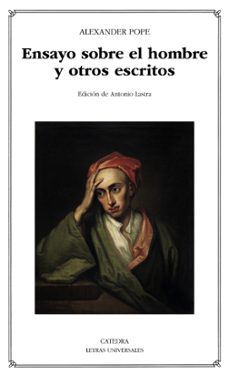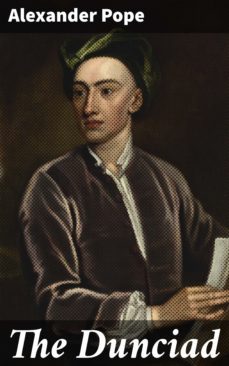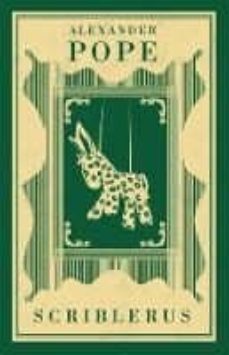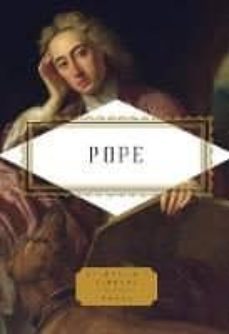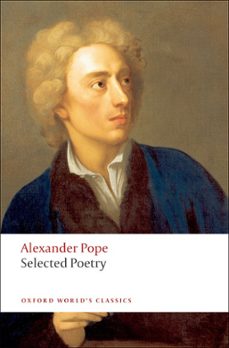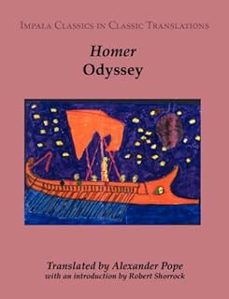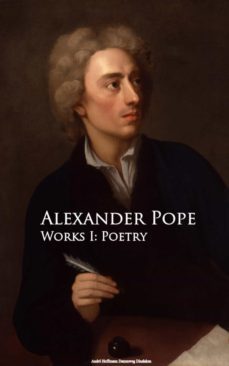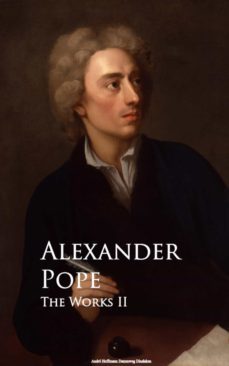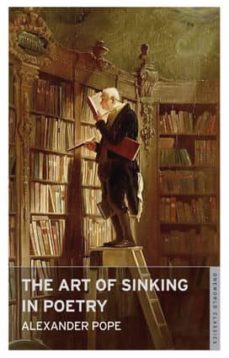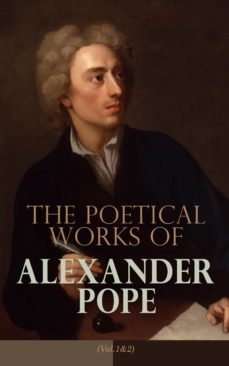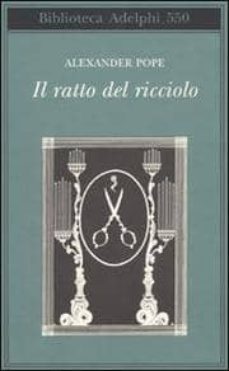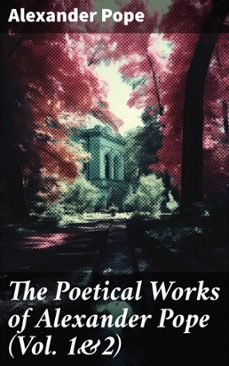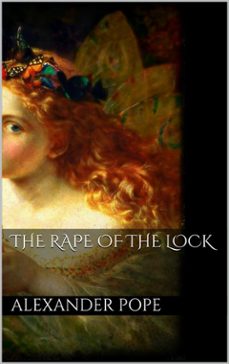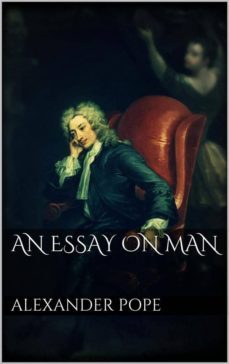Imprescindibles
Más vendidos Libros más leídos eBooks más leídos Todos los libros Todos los libros Autores destacados Series y sagas
Recomendados Libros recomendados Autores destacados Libros que inspiran Vidas con historia LGTBIQ+ English books
Ficción
Literatura Contemporánea Estudios literarios Clásicos Cuentos Poesía Teatro Libros de bolsillo Sagas literarias
Géneros literarios Novela romántica y erótica Novela negra Novela histórica Narrativa fantástica Novela de ciencia ficción Novela de terror Narrativa de humor Narrativa de viajes
No Ficción
Ciencias y tecnología Biología Ciencias Ciencias naturales Divulgación científica Informática Ingeniería Matemáticas Medicina Salud y dietas Formación Idiomas Estilo de vida Libros de Cocina Guías de viaje Narrativa de viajes Deportes Libros de Juegos Manualidades
Humanidades Autoayuda y espiritualidad Ciencias humanas Derecho Economía y Empresa Psicología y Pedagogía Filosofía Sociología Filología Biblioteconomía Estudios filológicos Estudios lingüísticos Estudios literarios Historia y crítica de la Literatura
Infantil
Juvenil
#Jóvenes lectores Narrativa juvenil Clásicos adaptados Libros Wattpad Libros Booktok Libros de influencers Libros de Youtubers Libros Spicy Juveniles Libros LGTBIQ+ Temas sociales Libros ciencia ficción Libros de acción y aventura Cómic y Manga Juvenil Cómic Juvenil Manga Shonen Manga Shojo Autores destacados Jennifer L. Armentrout Eloy Moreno Nerea Llanes Hannah Nicole Maehrer
Libros de fantasía Cozy Fantasy Dark academia Hadas y Fae Romantasy Royal Fantasy Urban Fantasy Vampiros y hombres lobo Otros Misterio y terror Cozy mistery Policiaca Spooky Terror Thriller y suspense Otros
Libros románticos y de amor Dark Romance Clean Romance Cowboy Romance Mafia y amor Romance dramatico Romcom Sport Romance Otros Clichés Enemies to Lovers Friends to Lovers Hermanastros Slow Burn Fake Dating Triángulo amoroso
Cómic y Manga
Novela gráfica Novela gráfica americana Novela gráfica europea Novela gráfica de otros países Personajes, series y sagas Series y sagas Star Wars Superhéroes Cómics DC Cómics Marvel Cómics otros superhéroes Cómics Valiant
Books in English
Books in English Fiction Non Fiction Comic Teen & Young Adult Main Authors Ken Follett Agatha Christie Stephen King Jane Austen Maggie O’Farrell On sale
Books in English for Young Adults Age 13+ Age 15+ Young Adult Authors Rebecca Yarros Sarah J. Maas Brandon Sanderson Ali Hazelwood Alice Oseman
Audiolibros
Literatura Contemporánea Narrativa fantástica Novela de ciencia ficción Novela de terror Novela histórica Novela negra Novela romántica y erótica Historia Historia universal
Humanidades Autoayuda y espiritualidad Ciencias humanas Economía y empresa Psicología y pedagogía Filosofía Infantil Audiolibros infantiles
Ciencia y tecnología Ciencias naturales Divulgación científica Medicina Salud y dietas Arte Cine Música Historia del arte
eBooks
Literatura Contemporánea Narrativa fantástica Novela de ciencia ficción Novela de terror Novela histórica Novela negra Novela romántica y erótica Juvenil Más de 13 años Más de 15 años Infantil eBooks infantiles
Humanidades Autoayuda y espiritualidad Ciencias humanas Economía y Empresa Psicología y Pedagogía Filosofía Historia Historia de España Historia Universal Arte Cine Música Historia del arte
Ciencia y tecnología Ciencias naturales Divulgación científica Medicina Salud y dietas Filología Estudios lingüísticos Estudios literarios Historia y crítica de la Literatura Estilo de vida Cocina Guías de viaje Ocio y deportes
Alexander Pope
Recibe novedades de Alexander Pope directamente en tu email
Filtros
Del 1 al 20 de 38
Ediciones Cátedra 9788437637112
Chesterton llamó a Alexander Pope el último poeta de la civilización. Marcado por la deformidad corporal y las enfermedades, que suplió con la excelencia del ingenio y el cultivo de la amistad, Pope encontro en la imitacion y la satira una forma de expresion que no ha sido superada en ese terreno. Traductor de Homero y editor de Shakespeare, Pope hizo de la literatura una forma de vivir. Practicamente inedito en español, esta edicion presenta a Alexander Pope como un autor que puede orientar al lector en un tiempo -como el suyo- de crisis y corrupcion moral y economica que, sin embargo, no puede someter a los espiritus -como el suyo- nobles e independientes.
Ver más
Bolsillo
Good Press 4064066435264
Alexander Popes "The Dunciad" stands as a satirical tour de force of the early 18th century, encapsulating the cultural and literary tensions of its time. Composed in heroic couplets, the poem is a scathing critique of the prevailing mediocrity and the decline of literary standards, as it mocks the burgeoning influence of dullness and ignorance on the arts. Through mock-epic conventions, Pope cleverly contrasts the high aspirations of true genius with the abject folly of dullness, embodied in figures such as Lewis Theobald, thereby exposing the fragility of literary merit in a politically charged landscape rife with hack writers and self-serving critics. Its intertwining of wit and social commentary situates "The Dunciad" firmly within the context of the neoclassicism movement and the poets desire for intellectual integrity amid the overpowering flood of artifice and insipidness. Born in 1688, Alexander Pope was a prominent satirist, poet, and critic whose personal struggles with health and societal norms fueled his biting wit and critical eye. Raised in a Catholic family during a time of Protestant ascendance in England, Pope faced various limitations that shaped his perspectives on authority and oppression. His experiences cultivated a profound understanding of human folly, which he masterfully encapsulated in "The Dunciad," expressing both personal grievance and broader societal critique. For those seeking a profound exploration of literary aesthetics, and a reflection on the socio-political underpinnings of art, "The Dunciad" is an indispensable read. Popes incisive commentary resonates to this day, challenging readers to confront the value of intelligence and creativity against the backdrop of mediocrity. This timeless work invites both literary scholars and casual readers to engage with its rich layers of meaning and to appreciate the enduring relevance of Popes satirical genius.In this enriched edition, we have carefully created added value for your reading experience:- A succinct Introduction situates the works timeless appeal and themes.- The Synopsis outlines the central plot, highlighting key developments without spoiling critical twists.- A detailed Historical Context immerses you in the eras events and influences that shaped the writing.- An Author Biography reveals milestones in the authors life, illuminating the personal insights behind the text.- A thorough Analysis dissects symbols, motifs, and character arcs to unearth underlying meanings.- Reflection questions prompt you to engage personally with the works messages, connecting them to modern life.- Handpicked Memorable Quotes shine a spotlight on moments of literary brilliance.- Interactive footnotes clarify unusual references, historical allusions, and archaic phrases for an effortless, more informed read.
Ver más
eBook
ALMA BOOKS 9781847491060
Alexander Pope was, at one time, the world's most celebrated poet. His trenchant satirical works - in which the foibles of all the critics, hacks and bad poets of his day are exploded - and his masterful heroi-comic poem The Rape of the Lock continue to inspire generations of writers and readers to this day. Alongside his more prominent poetical production, Pope engaged with some of the sharpest wits of his era - including Jonathan Swift and John Gay, the author of The Beggar's Opera - in writing a number of satirical prose works, of which Scriblerus is perhaps the greatest achievement. As he prepares to become father for the fi rst time, the scholar Cornelius is determined to settle on nothing less than a child of the "learned sex" - a boy - and give him the most thorough education so that he can become the greatest critic who ever lived. An account of the birth, the infancy, the schooling, the diet-planning, the unconventional love affairs and the attainments of this child prodigy,The Memoirs of Martinus Scriblerus is surely the funniest imaginary biography ever written.
Ver más
Tapa blanda
KKIEN Publ. Int. 9788833261416
Ogni riccio un capriccio....Il riccio rapito si inserisce nella corrente letteraria chiamata Eroicomica, e nello specifico quello di Pope e un finto poema epico in distici eroici. La prima versione, pubblicata nel 1712, era composta da due canti; la versione finale contenuta in questo ebook -, pubblicata nel 1714, fu ampliata a cinque canti. Basato su un incidente reale e scritto per riconciliare le famiglie che ne erano state protagoniste, Il riccio rapito racconta la storia di una giovane donna a cui viene rubata una ciocca di capelli da un giovane ardente e passionale. Pope racconta levento banale in termini solitamente riservati a incidenti di grande importanza, come la lite tra greci e troiani. La poesia sposa una ricca gamma di allusioni letterarie e un commento ironico sul mondo sociale contemporaneo con un senso di energia repressa che minaccia di rompere la patina sdolcinata che ricopre la cultura contemporanea inglese. Il risultato e un componimento gustoso, ironico, ricco di sfumature e argomentazioni che intrigano per il modo di essere condotte. Considerato uno dei massimi esempi della letteratura eroicomica, il Riccio rapito, che qui viene proposto nella traduzione classica di Antonio Beduschi, riesce ad appassionare e divertire il lettore contemporaneo per la sua scrittura e la testimonianza storica contenuta.
Ver más
eBook
PENGUIN PRESS, USA 9781101908020
A beautiful hardcover Pocket Poets selection of the works of Alexander Pope, the greatest English poet of his age. Alexander Pope is one of the most-quoted poets in The Oxford Dictionary of Quotations; he is the source of such immortal gems as Fools ru
Ver más
Tapa dura
OXFORD UNIVERSITY PRESS 9780199537600
Though critical opinion on Alexander Pope has frequently been divided, he is now regarded as the most important poet of the early eighteenth century. An invalid from infancy, he devoted his energies towards literature and achieved remarkable success with his first published work at the age of twenty-one. A succession of brilliant poems followed, including An Essay on Criticism (1711), Windsor Forest (1715), and his masterpiece, The Rape of the Lock. A second period of great poetry was begun in 1728 with the appearance of the first Dunciad. All these works--which exhibit Pope''s astonishing human insight, his wide sympathies, and powers of social observation (displayed to greatest effect in his talent for satire)--are included in this selection of his poetry. It has been compiled by the distinguished Pope scholar and editor Pat Rodgers, who also provides an indispensable introduction that offers a new interpretation of Pope''s poetry, and the philosophical ideas behind it. ''Good notes, especially on esoteric terms, concepts, [and] items endemic to the 18th century.''--Mary Norton, Western Carolina University ''This is an excellent classroom text for a course in major 18th century poets. I would not hesitate to use it or recommend it to others.''--Robert D. Spector, Long Island University ''An absorbing and erudite study.''--John Marillo, North Carolina State University ''The cleanest text of all Pope anthologies combined with the most helpful notes make this the most accessible collection of Pope''s poems available to students.''--Jerome Donne, University of Central Florida
Ver más
Tapa blanda
IMPALA 9781905530069
To the modern reader Homer's Odyssey is perhaps the most relevant and engaging of all the classical epics. It was not by chance that James Joyce, the mentor of Samuel Beckett, chose Ulysses as the title for his own epoch-defining novel. So successful was Alexander Pope's translation of the Iliad that the great English 18th-century poet then turned his hand - with the assistance of several collaborators - to the translation of Homer's second epic. A new introduction argues that Pope's Odyssey provides a fascinating window for the modern reader onto eighteenth-century attitudes and prejudices. Though it has been much neglected, Pope's Odyssey is in many respects a more interesting and stimulating text than his celebrated Iliad. Unusually for a work of this kind, the text is presented in a reader-friendly format,with generous space for personal annotations and references. Robert Shorrock teaches Classics at Eton College, Windsor. He received his PhD from the University of Cambridge in 1999 and is the author of The Challenge of Epic: Allusive Engagement in the Dionysiaca of Nonnus (Leiden, 2001). He has published a number of articles on epic poetry and the Classical Tradition, and is co-editor of the journal Greece & Rome.
Ver más
Tapa blanda
anboco 9783736413252
Alexander Pope was an 18th-century English poet. He is best known for his satirical verse, as well as for his translation of Homer. Famous for his use of the heroic couplet, he is the second-most frequently quoted writer in The Oxford Dictionary of Quotations, after Shakespeare.
Ver más
eBook
anboco 9783736412989
Alexander Pope is best known for his satirical verse, as well as for his translation of Homer. Famous for his use of the heroic couplet, he is the second-most frequently quoted writer in The Oxford Dictionary of Quotations, after Shakespeare.
Ver más
eBook
ALMA BOOKS 9781847491053
Written in 1727, this satirical volume was one of Alexander Popes contributions to the literary output of the legendary Scriblerus club, a circle of writers dedicated to mocking what they perceived as a culture of mediocrity and false learning prevalent in the arts and sciences. Taking the form of an ironic guide to writing bad verse, Popes tongue-in-cheek essay is wickedly funny in its lampooning of various pompous poetasters, and is essential reading for any budding writer wishing to avoid sinking to the unintentionally ridiculous and to instead to reach for the sublime. Several lesser-known pieces by other members of the Scriblerus club are also included.
Ver más
Tapa blanda
Proyecto Gutenberg cdlpg00022870
Translator: Jose Nicolau de Massuelos Pinto Language: Portuguese
Ver más
eBook
e-artnow 4064066059293
e-artnow presents to you this meticulously edited and formatter collection:Contents:Volume 1:PastoralsMesiahAn Essay on CriticismThe Rape of the LockWindsor-ForestOde on Cecilias DayTwo Choruses to the Tragedy of BrutusTo the Author of a Poem Entitled SuccessioOde on SolitudeThe Dying Christian to His SoulElegy to the Memory of an Unfortunate LadyPrologue to Mr Addisons Tragedy of CatoImitations of English PoetsThe Temple of FameEloisa to AbelardEpistle to Robert Earl of OxfordEpistle to James CraggsEpistle to Mr JervasEpistle to Miss BlountEpistle to Mrs Teresa BlountEpitaphsAn Essay on ManEpistle to Dr AkbuthnotSatires and Epistles of Horace ImitatedThe Satires of Dr John VersifiedEpilogue to the SatiresVolume 2:Moral EssaysTranslations and Imitations:Sappho to PhaonThe Fable of DryopeVertumnus and PomonaThe First Book of Statiuss ThebaisJanuary and MayThe Wife of BathPrologues and EpiloguesMiscellanies:The Basset-TableLines on receiving from the Right Hon. the Lady Frances Shirley aStandish and Two PensVerbatim from BoileauAnswer to the following Question of Mrs HoweOccasioned by some Verses of His Grace the Duke of BuckinghamMacer: a CharacterSong, by a Person of QualityOn a Certain Lady at CourtOn his Grotto at TwickenhamRoxana, or the Drawing-RoomTo Lady Mary Wortley MontagueExtemporaneous Lines on a Portrait of Lady Mary Wortley MontagueLines sung by Durastanti when she took leave of the English StageUpon the Duke of Marlboroughs House at WoodstockVerses left by Mr PopeThe ChallengeThe Three Gentle ShepherdsEpigram, engraved on the Collar of a DogThe TranslatorThe Looking-GlassA Farewell to LondonSandys GhostUmbraSylvia, a FragmentImpromptu to Lady WinchelseaEpigramEpigram on the Feuds about Handel and BononciniOn Mrs Tofts, a celebrated Opera SingerThe Balance of EuropeThe Universal PrayerThe Dunciad
Ver más
eBook
IBERIA LITERATURA 9783959282598
• Al lector• La Primavera ó Damon• El Estío ó Alexis• El Otoño ó Aminta y Nemorin• El Invierno ó Daphne• El poder de la música• El Mesías• La selva de WindsorAlexander Pope (Londres, 21 de mayo de 16
Ver más
eBook
Proyecto Gutenberg cdlpg00032190
Contributor: Whitwell Elwin
Ver más
eBook
Good Press 8596547776369
In "The Poetical Works of Alexander Pope (Vol. 1&2)," readers encounter a rich tapestry of 18th-century English literature, characterized by Popes signature heroic couplets and satirical wit. This comprehensive compilation includes seminal works such as "The Rape of the Lock," which deftly critiques the pretensions of aristocratic society through a mock-epic lens, and "Essay on Criticism," where Pope intricately explores the nature of poetic artistry itself. The volumes reflect the neoclassical ideals of order, decorum, and reason, while simultaneously embracing the complexities of human emotion and morality, thus positioning Pope as a pivotal figure amidst the literary debates of his time. Born in 1688, Alexander Pope was not only a poet but also an astute commentator on the socio-political landscape of his era. His Catholic upbringing and personal struggles with health shaped his perspectives, prompting him to engage deeply with themes of fate, fortune, and the human condition. His engagement with contemporary philosophical thoughts and the grandeur of classical literature spurred him to create a body of work that continues to resonate and provoke thought among readers and scholars alike. This essential collection is highly recommended for both enthusiasts of English poetry and those seeking to understand the evolution of literary forms. Popes eloquence and sharp insight into human follies and societal conventions provide both entertainment and intellectual stimulation, making these volumes a crucial addition to the library of any literary scholar or casual reader.
Ver más
eBook
Simone Vannini 9788892586437
Perhaps no other great poet in English Literature has been so differently judged at different times as Alexander Pope. Accepted almost on his first appearance as one of the leading poets of the day, he rapidly became recognized as the foremost man of letters of his age. He held this position throughout his life, and for over half a century after his death his works were considered not only as masterpieces, but as the finest models of poetry. With the change of poetic temper that occurred at the beginning of the nineteenth century Popes fame was overshadowed. The romantic poets and critics even raised the question whether Pope was a poet at all. And as his poetical fame diminished, the harsh judgments of his personal character increased. It is almost incredible with what exulting bitterness critics and editors of Pope have tracked out and exposed his petty intrigues, exaggerated his delinquencies, misrepresented his actions, attempted in short to blast his character as a man.
Ver más
eBook
Simone Vannini 9788892586413
Popes life as a writer falls into three periods, answering fairly enough to the three reigns in which he worked. Under Queen Anne he was an original poet, but made little money by his verses; under George I. he was chiefly a translator, and made much money by satisfying the French-classical taste with versions of the Iliad and Odyssey. Under George I. he also edited Shakespeare, but with little profit to himself; for Shakespeare was but a Philistine in the eyes of the French-classical critics. But as the eighteenth century grew slowly to its work, signs of a deepening interest in the real issues of life distracted mens attention from the culture of the snuff-box and the fan. As Popes genius ripened, the best part of the world in which he worked was pressing forward, as a mariner who will no longer hug the coast but crowds all sail to cross the storms of a wide unknown sea. Popes poetry thus deepened with the course of time, and the third period of his life, which fell within the reign of George II., was that in which he produced the Essay on Man, the Moral Essays, and the Satires. These deal wholly with aspects of human life and the great questions they raise, according throughout with the doctrine of the poet, and of the reasoning world about him in his latter day, that the proper study of mankind is Man.
Ver más
eBook
Proyecto Gutenberg cdlpg00009413
eBook
Del 1 al 20 de 38


























